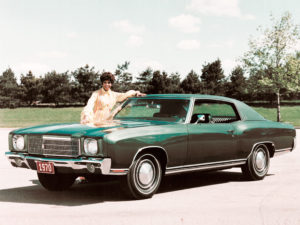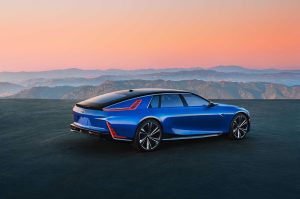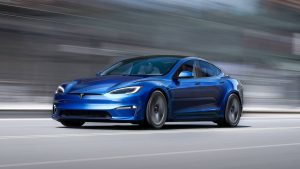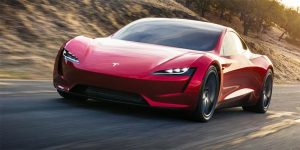Electric vehicles are no more likely to catch fire than any gas model currently on the road, but the fires that do occur tend to make headlines, especially when a Tesla is involved. A Tesla Model S caught fire near Rancho Cordova, California, over the weekend, requiring 6,000 gallons of water to extinguish. Though there are plenty of questions about how and why the fire happened, the incident provides an excellent opportunity to talk about EV fires and why they’re so much different than gas vehicle fires.
Electric vehicle batteries are made of several individual cells. When one short circuits, it releases its energy quickly, creating massive heat. Hundreds or thousands of cells releasing their energy simultaneously multiply that heat, making it exceedingly difficult to extinguish the flames.

When firefighters arrive at the scene of a burning EV, using a small amount of water can actually make the battery fire worse. Extinguishing the flames can take tens of thousands of gallons of water, leading some fire departments to submerge vehicles in fresh water when a fire breaks out. Other materials, such as powdered graphite, can also smother the flames better than water.
The industry is rushing toward developing new, safer battery technologies, but for now, lithium-ion batteries are the only game in town. Lithium-ion battery cells contain a cathode, an anode, a liquid electrolyte, and a separator. The liquid is flammable, and when exposed to heat, one or more cells can cause the others to ignite.
One emerging battery technology could help make EV batteries much less flammable. Removing the liquid electrolyte in favor of a solid-state electrolyte will drastically reduce the fire risk and make them smaller, lighter, and cheaper. That said, no one has been able to crack the nut of how, exactly, to make solid-state batteries work from a practical and financial perspective. Many automakers and other companies are working to develop the battery tech, however, so things may change rapidly soon.
What this means for you
If you’re on the fence about buying an EV, reading about fires isn’t going to make you feel any more confident about the decision. The thing to remember is that EV fires are exceedingly rare and that you’re less likely to end up in one than you would in a gas car. More pressing concerns with buying an EV relate to charging locations, charging times, and purchase cost. If you live outside a major metro area and can’t charge at home, sparse EV charging infrastructure could make it nearly impossible to get around.








